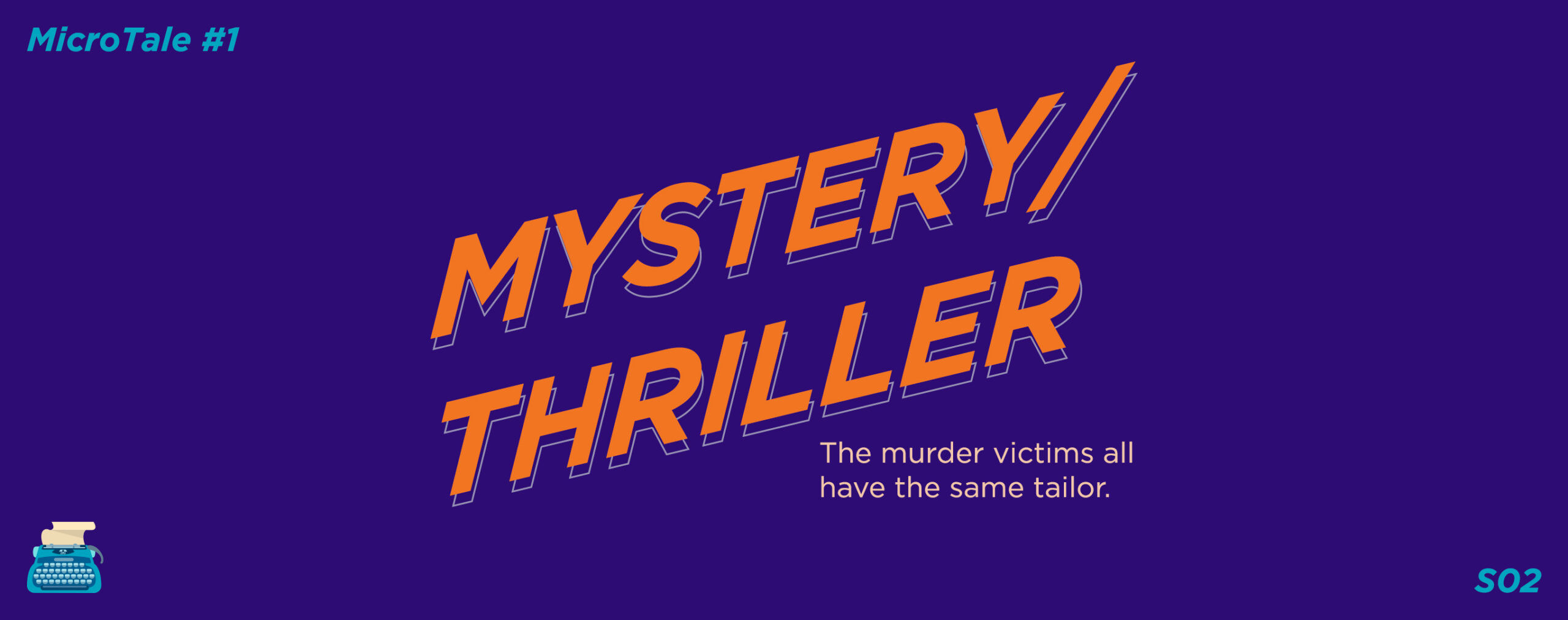Rule of Threes

It was a chilly morning. He arrived at his shop wrapped in his dhussa (shawl) to keep him warm. He was about to take the padlock off of the door when he noticed the sign above it was tilted. It filled him with a deep unease. He’d have to call in Chotu from the hardware store to fix it. He didn’t like relying on people. Trusting others felt akin to laying down roots. But he couldn’t possibly fix the sign single-handed.
This was his third town, his third identity. He had learned to travel light and scatter the memories of his past self as he would the ashes of a beloved. He didn’t like staying in a town too long once the voices in his head settled down. He wasn’t long for this town now either. The voices in his head had reached the crescendo that indicated a job almost finished.
Three was his magic number; three fingers on his left hand, three parts of the Holy Trinity, three voices in his head, three women in each town.
The voices had always been with him – encouraging him, consoling him. But it wasn’t until his father died that the voices became stronger and louder – as if the only thing keeping them hushed was the menace that was his abba. He never knew how easy breathing was until the day his father breathed his last. It was a joy unlike anything he had ever known, like the first sip of limonpani (lemonade) on a hot summer day. But then the voice got louder and he knew that if he didn’t listen to them, he would probably kill himself.
He was born and raised in Lahore, a metropolis of shadows. The city was old, beautiful, overpopulated, and over-polluted. And it was so deeply embedded in his blood that he knew he would carry it with him wherever he went. So, when the voices asked him to leave the city, to start fresh, he didn’t think twice. He sold his abba’s shop and packed some clothes, an extra pair of kolhapuris, and the tools of his trade – a measuring tape, a matchbox filled with sewing pins, a box of thread, a jam jar filled with buttons, and his favorite dressmaker’s shears.
The first town the voices led him to was Leiah. He bought a small shop in a quiet corner downtown, bought a used sewing machine, and set up his own tailoring business. He left the box of thread, the jar of buttons, and the matchbox of needles in the shop but kept his scissors and measuring tape on his person at all times. The voices had settled to a quiet hum that he could easily tune out. Until the day she arrived.
There were others after her but he didn’t remember any as clear as her. Every detail of that first day shone brightly in his mind. She wore a yellow dress, the qamis tailored nicely to the curve of her back. Her black chadar hid most of her face, but her kohl-rimmed eyes made his blood sing.
“Master jee,” she began, placing a bundle on the small counter that separated them, “all the darzis in this town know nothing of fashion.”
He chuckled and opened the bundle to find a bright pink length of cloth and a smaller package which he knew would contain lace or other adornments.
“You must know what the Lahori ladies wear these days. Even what they wore last season would be new here!”
She spent a good ten minutes discussing sleeves she had seen in a fashion magazine brought to her from the big city by a visiting cousin. The moment she left, the voices started with an intensity that made him swoon. They insisted that she was too pure for this world.
And so the next time she came to the shop, she found it closed. She looked around, waited a while, and then left. He watched her, hidden from view, and then began trailing her. He followed her to the door of her house. Despite the voices telling him to ‘do it now’, he couldn’t summon the nerve. When trailed her again the following day, he caught up to her near the halfway mark, wrapped a hand around her mouth, and dragged her into a dark alley. She thrashed against him and he almost lost his grip. But he turned her around and before she could catch her voice, he had her hands wrapped around her throat. Her chaddar, navy blue that day, had slipped off her shoulders. He felt her pulse quicken and then gradually fade beneath his palms. The coffee tinted skin, the full lips, the luscious black plait – she was indeed too pure for this world.
He waited in the alley with her body held close to his. As soon as night fell and he was sure his corner of the market would be deserted, he carried her to his shop and laid her on the table in the backroom. She looked so peacefully asleep. He stitched buttons on to her eyes to make sure light didn’t disturb her slumber. He sewed her lips shut to keep her honeyed voice from escaping. And then he carried her body to the city park and left her to her rest beneath the night sky.
She was the first and the only one he remembered in such vivid detail. The rest were all blurry faces.
He saved two more in Leiah over the course of two years, saved them from the filth of the world. Then he moved to Bhalwal, changed his name, shaved his head, grew a beard, and saved three more in three years. From there he moved to Jatoi, changed his name again, shaved the beard, lightened his hair with henna, and saved two beautiful girls. But it was his fifth year in this town and he had become comfortable.
Until he saw her, and the voices reached a fever pitch.
[DISPLAY_ULTIMATE_SOCIAL_ICONS]


Wow this was amazing. Best part I liked was this: “Three was his magic number; three fingers on his left hand, three parts of the Holy Trinity, three voices in his head, three women in each town.” Keep up the great work!
Yayy! Thanks. I actually struggled with this line because I couldn’t figure out the right balance between too few and too many ‘three’ things.